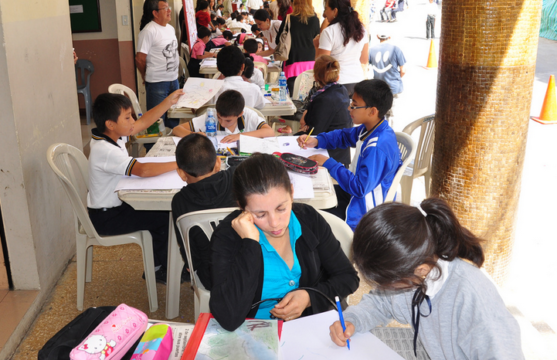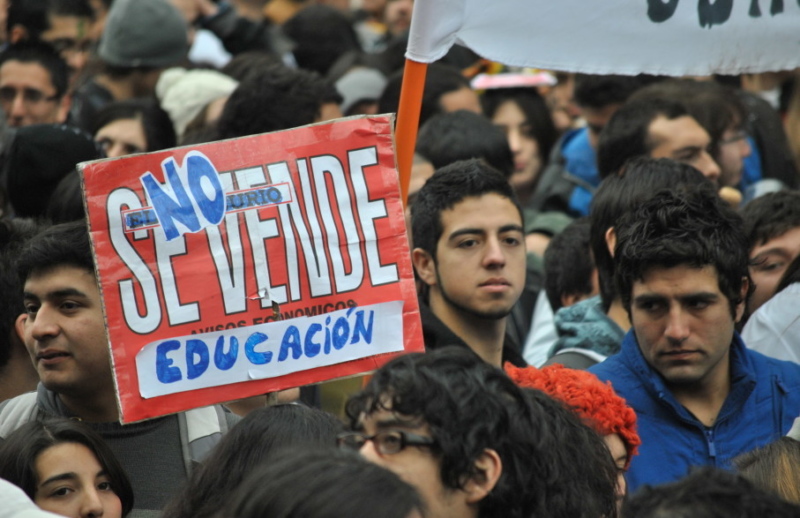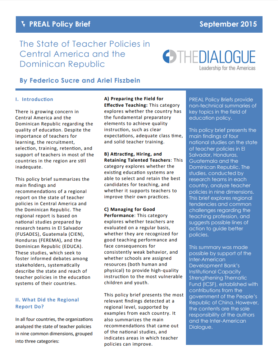
Towards Quality Education for All
Education quality if one of the biggest challenges for Latin America – and also one of the main opportunities.
Though home to one of the highest-quality education systems in Latin America, since 2011 Chile has been rocked by powerful student protests that call for greater education quality and equity. To meet her campaign pledges, Michelle Bachelet submitted a proposal to Congress in May hailed as “Chile's most significant education reform in 50 years.”
The legislation would bar schools from charging copayments above and beyond the public funding they receive, require for-profit schools that receive public funding to become non-profit, and prohibit primary schools and kindergartens that receive public funding from picking and choosing their students, among other proposals.
On June 24, the Inter-American Dialogue hosted a discussion about the ambitious education reform proposed by President Bachelet. Senior Fellow Sergio Bitar, a former Chilean senator and minister in three administrations, started the discussion by analyzing the proposals and assessing their relevance for other Latin American education systems.
According to Bitar, the three main objectives on education in Chile are: “increase efforts to improve quality for all, expand access of lower-income groups, and reduce segmentation and gaps in quality.” He believes that the main challenges of the reforms will be “how to achieve the change from for-profit to non-profit schools, together with eliminating copayments.”
These changes can have serious political implications. For example, the owners of for-profit schools will go to the parents and say ‘now you only have two options: you can switch your child to a public school, or you have to pay full tuition.’ Bitar argued that scenarios like this one can become a major problem.
Emiliana Vegas, chief of the Education Division at the Inter-American Development Bank, followed with some critical remarks about the state of education in Chile. “Something that has really struck me and my team is that the rules are very different for public and private schools,” she said. This situation makes for “a market that is not truly competitive because different providers have different conditions to operate.” Vegas agreed with Bitar in that the system is not providing quality for all.
However, Vegas took the time to recognize the progress in the Chilean education system. She highlighted three major accomplishments: first, today in Chile most children can expect to finish 12 years of education, which is very unusual in Latin American countries; second, Chile has the highest PISA scores in the region; and third, the gap between students who come from poor and rich households has decreased.
Sergio Urzua, Assistant Professor of Economics at the University of Maryland, adopted perhaps the most critical stance in the discussion. “What word would I use to describe this education reform? It’s actually improvisation,” he said. In his view, all the titles are great, but the subtitles and especially the footnotes are alarming.
According to Urzua, the proposals are not tackling the three main challenges of education in Chile: “better teachers for more vulnerable students; better teachers for more vulnerable students; and better teachers for more vulnerable students. Period.”
Bachelet’s education proposals have generated a lot of controversy, with some saying they go too far, and others arguing they don’t go far enough. Bitar is confident that the reform will eventually be approved since there is a majority in both Congress and House to move forward with the process. In his view, however, the proposals need to be adjusted. They need to improve communication with parents; they need to review the sequence of implementation of the reforms; and they need to prepare a better long-term plan in order to achieve the desired results.
Education quality if one of the biggest challenges for Latin America – and also one of the main opportunities.
Despite the importance of teachers in the learning process, systems for recruiting, selecting, training, and supporting teachers remain deficient.
Despite the importance of teachers in the learning process, systems for recruiting, selecting, training, and supporting teachers remain deficient
 Simenon / CC BY-SA 2.0
Simenon / CC BY-SA 2.0

